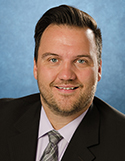Page Content
 If you ask Alberta Teachers’ Association president Mark Ramsankar about curriculum, he is almost guaranteed to begin by saying curriculum belongs to all Albertans.
If you ask Alberta Teachers’ Association president Mark Ramsankar about curriculum, he is almost guaranteed to begin by saying curriculum belongs to all Albertans.
It is a wonderful statement that speaks to the importance of public education to society. All Albertans, not just teachers or parents, have an interest in the outcomes of public education and in ensuring that all children are raised to be well-educated, thoughtful citizens.
As government embarks on a comprehensive overhaul of our curriculum for all grade levels across six subject areas, it is completely understandable that the public wants their voices included. And their voices must be included.
However, I am concerned that some people are insisting that the names of the more than 300 curriculum working group members, mostly classroom teachers, must be publicly released.
Because the government acts as the representative of citizens, it has an obligation to collect public input and to bring it into the conversation about curriculum. And that is being done.
In the fall of 2016, 32,000 Albertans participated in an online survey about what should be included in the new curriculum. I acknowledge that this survey left a lot to be desired, but public consultation did not end there. Face-to-face engagement sessions were held, and some organizations had the opportunity to present to the curriculum working groups last month.
These groups will now create draft subject introductions and draft scope and sequences for each subject across K–12 based on the public input and other government direction.
Public input will continue to be gathered. Those subject introductions and draft sequencings will be validated before specific outcomes are written. More surveys and face-to-face engagement will then occur to respond to the draft outcomes.
An ongoing cycle of drafting and feedback will continue through to 2022 when the rewrite is targeted for completion.
Given this, I think it is simply an unnecessary invasion of privacy to publish the names of these teacher volunteers. The working group members are fulfilling a professional and technical role in the process, not a political one. Some of those who are so intent upon learning individual names, I believe, are looking to politicize the working groups’ work, which would be problematic or even dangerous to the whole process.
For some petitioners, their motives come down to one of two goals: to undermine the process by discrediting the professionals involved, or to directly lobby working group members on what should be included in or excluded from the curriculum. The former concern amounts to a McCarthyesque witch hunt, an attempt to expose members as being part of the gay agenda, a communist, or even worse, a discovery math proponent! The latter concern is troubling because it attempts to circumvent established channels for public feedback and interfere with the teachers’ abilities to provide sound, objective, professional advice.
The working group members are not the final arbitrators of what will be in the curriculum. The government will continue to hold that role. Rather, these participants are building a road map for getting students from point A to point Z in the learning journey. Politicizing this work is unnecessary and obstructive.
These teachers have a right to privacy, despite their role in this government work. The Association has heard from many teachers who have very legitimate concerns about their names being made public. Some need to manage their safety or that of their family members, while others are rightfully concerned about harassment at home, school or in the often ugly world of social media.
Considering how this curriculum renewal has already been bounced about as a political hot potato, I don’t blame them for advancing very real concerns for their safety, security and privacy.
The public has a right to be included in the process of curriculum development, but the vehicle for that representation is through established government channels, their elected members of the legislative assembly, or the Ministry of Education.
The final decision about what is in and out of curriculum belongs to Albertans. And it’s the minister of education, as the public’s representative, who should be held accountable for those decisions, not the teachers undertaking the professional and technical work of turning the public’s wishes into programs of study.
I welcome your comments — contact me at jonathan.teghtmeyer@ata.ab.ca.
